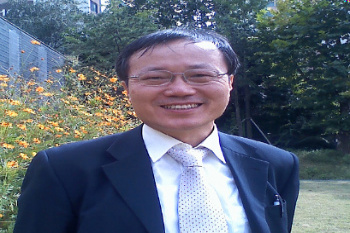Choi Seong-man (Department of German Language and Literature)

If one is asked the question of “what is identity,” the correct answer may possibly lie in the response that the Indian American economist Amartya Sen gave to the question of “what is justice.” When Sen received the question in an interview, he stated that “the theory of justice must be more concerned with the elimination of removable injustices rather than defining a perfectly just society.” The very same response can also be applied to concepts of freedom and equality. That is to say, it is necessary that we realize how great the state of our oppression is, how vastly unequal the society we exist in is, and then seek ways to solve these issues one by one.
Perhaps the question of how to define what identity is can be answered in a similar fashion. In other words, perhaps this concept of “identity” is the encounter of one’s own self through mimetic correspondence with others and objects and the ability to empathize with objects and others. Furthermore, it could be arguable that the concept of identity and the idea of self is the nebulous something that humans ultimately encounter in the final moment of life. And as an image rising from memories, at that. Before that moment, as someone once said, the sense of “self” in life is merely “improvisation” and a “mask” in the positive sense.
When understood in these terms, it is only logical that people do not possess, or at the very least are not assured of, their self-identity. But we are part of a culture that finds fault with people without a sense of identity. Under the reasoning that the lack of self-identity comes to be the root of many social problems today, we are constantly indoctrinated with this line of thinking and pressured to find our identity. Whether it be in academic settings or the reality of life in society, the emphasis placed on self-identity and proactivity is extremely evident.
However, those with a fixed sense of identity cannot truly experience mimesis with others. In making the inhabitants of society believe that the absence or lack of identity is a flaw and subsequently inducing them to buy with money and adopt the identity that they do not possess, the violent and flimsy nature of culture becomes apparent. People who possess absolute certainty in themselves are people of violence. It is difficult to expect one who is full of ironclad conviction in oneself to empathize with others or objects. However, there are times when this vacillating idea of identity comes to stand still. These are times when one rises to resist and show courage when confronted with injustice. This is the moment that one finally throws off the false identity cobbled together by society and is reborn anew. And that is why tyrants and rulers dread and oppress this concept of identity. Should all people each begin to express their individual identities, it would become impossible to maintain such control over society.
The problem does not lie in competition, or conflict, or disharmony. What is important is how people rationally mediate, overcome, and sublimate these difficulties. As countless scholars have observed and remarked, the process of building a civilization is unmistakably and unavoidably accompanied by violence and oppression. The will and the effort to defeat this overlaid oppression, to consciously recognize and then work to ameliorate it, is cardinal. The incidents of sexism, abuse of power, and the various types of hatred that so frequently reoccur in Korean society are symptoms of failure in this process of recovery.
Professor Choi earned his Ph.D. in the Free University of Berlin. He is currently in the Deparment of German Language and Literature of Ewha Womans University

